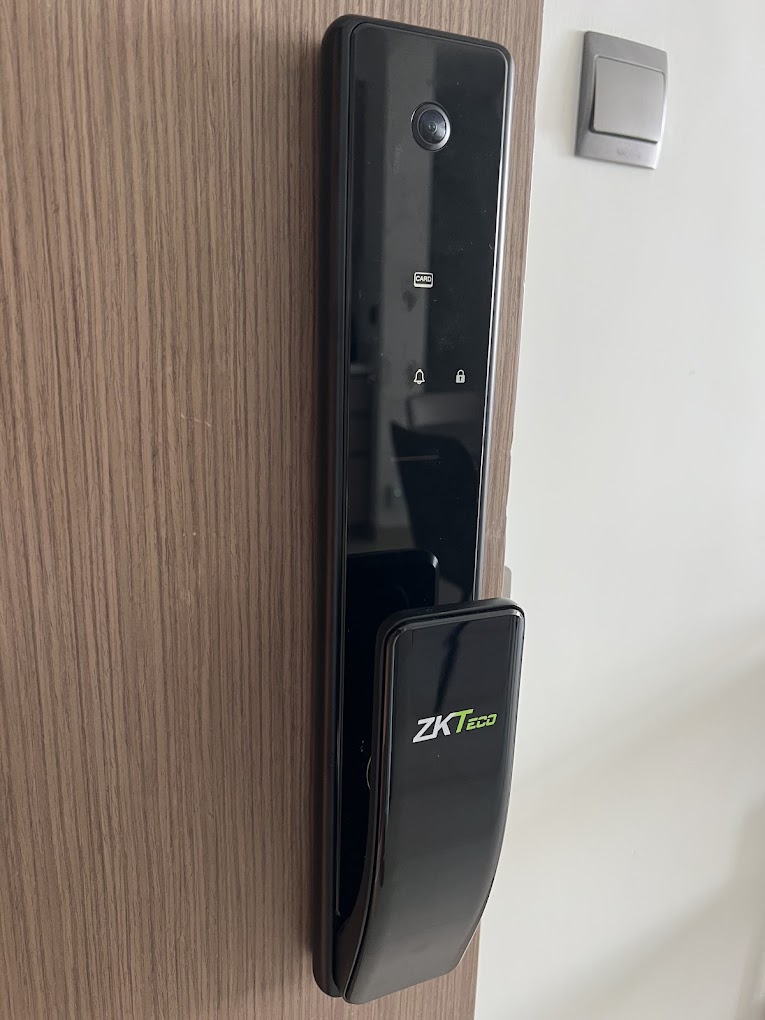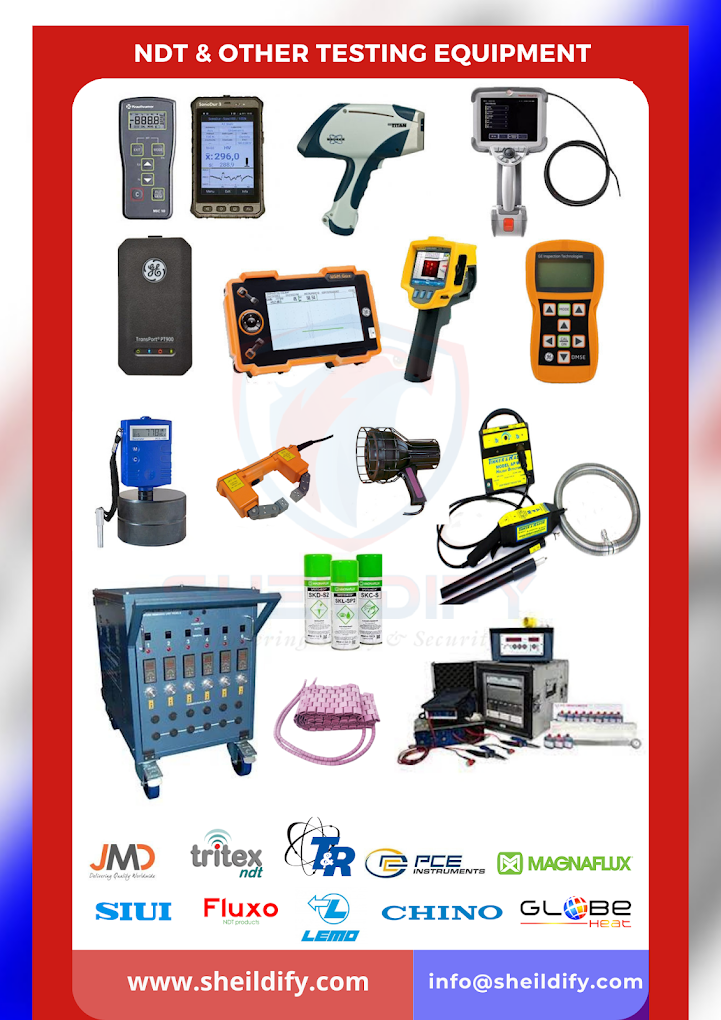Top 10 Patient Monitor Dealers in Dubai
A Patient Monitor Dealer is a business entity or organization that supplies and distributes patient monitoring equipment to hospitals, clinics, and other healthcare facilities. These dealers provide medical equipment that helps in monitoring vital signs such as heart rate, blood pressure, temperature, respiratory rate, and oxygen levels of patients. The patient monitors are crucial in critical care environments, providing continuous data that helps medical professionals assess the health status of patients. They can be used in emergency departments, intensive care units, operating rooms, and for general ward care.
Patient monitor dealers in Dubai play a pivotal role in the healthcare sector by providing advanced equipment from reputed manufacturers. They are responsible for ensuring the availability, installation, maintenance, and support of patient monitoring systems in hospitals and clinics throughout Dubai and the wider UAE.
Shieldify Security Equipment Trading LLC
Khalifa BA Balila Building, 22B Street Abu Hail, Near Abu Hail Masjid Ashram,
Abu Hail, Dubai, 39701
Al Harbi Trading LLC
Dubai Investment Park 1, Dubai, UAE
Medcare Hospital
Sheikh Zayed Road, Dubai, UAE
Aster DM Healthcare
Aster Hospital, Al Qusais, Dubai, UAE
Emirates Medical Equipment Co. LLC
Al Qusais, Dubai, UAE
Modern Healthcare Equipment Trading LLC
Deira, Dubai, UAE
Vanguard Medical Supplies LLC
Al Qusais, Dubai, UAE
Pharmalink Medical Equipment Trading LLC
Al Quoz 1, Dubai, UAE
Global Medical Equipment Trading LLC
Al Karama, Dubai, UAE
Medica Instrument & Devices Trading
Al Qusais, Dubai, UAE
Patient Monitor Dealers in Dubai
Patient monitors are essential medical devices used in hospitals, clinics, and home care settings to track vital signs such as heart rate, blood pressure, oxygen saturation, and more. They play a crucial role in diagnosing, monitoring, and managing patients' health conditions. If you're looking for reliable patient monitor dealers, this guide provides essential information on finding the best suppliers.
A patient monitor is a medical device used to observe and track the vital signs of a patient. It displays important parameters such as:
Heart Rate (HR): Monitors the speed of the heart's beating.
Blood Pressure (BP): Measures the pressure of the blood in the arteries.
Respiratory Rate (RR): Tracks the number of breaths taken per minute.
Oxygen Saturation (SpO2): Measures the oxygen level in the blood.
Electrocardiogram (ECG): Shows the electrical activity of the heart.
Temperature: Tracks the patient's body temperature.
Types of Patient Monitors Offered by Dealers in Dubai
1. Multi-Parameter Patient Monitors
- Features: These monitors measure multiple vital signs simultaneously, such as heart rate, blood pressure, oxygen saturation (SpO2), respiratory rate, and temperature.
- Usage: Ideal for use in intensive care units (ICUs), operation rooms, and emergency rooms.
2. ECG Monitors
- Features: These monitors provide continuous electrocardiography (ECG) readings, which help in monitoring heart activity.
- Usage: Primarily used in cardiology departments to track patients with heart conditions.
3. Blood Pressure Monitors
- Features: These monitors measure the blood pressure using non-invasive or invasive methods.
- Usage: Commonly used in outpatient clinics, hospitals, and home healthcare settings.
4. Pulse Oximeters
- Features: Pulse oximeters measure the oxygen saturation level in the blood and heart rate.
- Usage: Typically used in hospitals, clinics, and at home for patients with respiratory issues.
5. Fetal Monitors
- Features: These monitors measure fetal heart rate and uterine contractions during pregnancy.
- Usage: Used in maternity wards and gynecology clinics to monitor the health of the fetus and the mother.
6. Capnography Monitors
- Features: These monitors measure the concentration of carbon dioxide (CO2) in a patient's exhaled air.
- Usage: Used during anesthesia, sedation, and in critical care for patients with respiratory conditions.
7. Cardiac Output Monitors
- Features: Monitors the amount of blood the heart pumps in a minute (cardiac output).
- Usage: Used in critical care and during surgeries to assess cardiac function.
8. Neonatal Monitors
- Features: Specialized monitors designed for newborns, measuring vital signs like heart rate, oxygen levels, and temperature.
- Usage: Used in neonatal intensive care units (NICUs).
9. Glucose Monitors
- Features: These devices measure the glucose levels in the blood.
- Usage: Used for diabetes management in hospitals, clinics, and at home.
10. Anesthesia Monitors
- Features: These monitors track patient vitals during anesthesia, including oxygenation, ventilation, circulation, and body temperature.
- Usage: Used in operating rooms during surgeries.
11. EEG Monitors
- Features: Monitors brain activity through electroencephalography (EEG) readings.
- Usage: Primarily used in neurology for patients with seizures or other neurological disorders.
12. Wearable Monitors
- Features: Portable, lightweight monitors worn by patients to track vitals like heart rate, SpO2, and physical activity.
- Usage: Suitable for remote patient monitoring and home healthcare settings.
Importance of Choosing the Right Dealer
When purchasing patient monitors, it’s crucial to select a reliable dealer. The right dealer ensures you get certified products, technical support, warranties, and after-sales services.
Key Benefits of Choosing a Trusted Dealer:
- Quality assurance: Devices from certified manufacturers.
- Warranty and servicing: Post-sale services and maintenance support.
- Affordable pricing: Competitive prices based on the model and features.
- Installation and training: Technical support to install and train medical staff on proper usage.
Top Brands Available Through Dealers in Dubai
1. Philips Healthcare
- Products: Multi-Parameter Monitors, ECG Monitors, Portable Monitors, and Fetal Monitors.
- Features: Known for advanced technology, intuitive user interfaces, and durable designs. Philips offers patient monitors for a wide range of clinical environments, including critical care and general wards.
2. GE Healthcare
- Products: Multi-Parameter Monitors, Anesthesia Monitors, Neonatal Monitors, and Portable Monitors.
- Features: GE’s monitors are highly regarded for their precision in measuring vital signs and are often used in operating rooms, ICUs, and NICUs. They also focus on data integration and connectivity in hospital systems.
3. Mindray
- Products: ECG Monitors, Multi-Parameter Monitors, Capnography Monitors, and Pulse Oximeters.
- Features: Mindray is known for cost-effective, high-quality patient monitors that are widely used in hospitals and clinics. The brand combines affordability with reliable performance.
4. Dräger
- Products: Anesthesia Monitors, Multi-Parameter Monitors, and Neonatal Monitors.
- Features: Dräger is a well-known brand in the field of medical and safety technology, offering high-precision monitors, especially for anesthesia and neonatal care.
5. Nihon Kohden
- Products: ECG Monitors, Pulse Oximeters, Capnography Monitors, and Multi-Parameter Monitors.
- Features: Nihon Kohden is widely known for its expertise in diagnostic and monitoring technology. Their devices are designed for ease of use, providing real-time data to healthcare professionals.
6. Schiller
- Products: ECG Monitors, Cardiopulmonary Monitoring Systems, and Defibrillator Monitors.
- Features: Schiller is a global leader in cardiopulmonary diagnostics, offering high-quality ECG monitors and other cardiac-related devices for hospitals and cardiology centers.
7. BPL Medical Technologies
- Products: ECG Monitors, Multi-Parameter Monitors, Fetal Monitors, and Pulse Oximeters.
- Features: BPL is a leading Indian brand that provides reliable and affordable medical monitoring systems, especially in smaller clinics and healthcare facilities.
8. Zoll Medical
- Products: Cardiac Monitors, Defibrillator Monitors, and Capnography Monitors.
- Features: Zoll is renowned for its cardiac care devices, including advanced defibrillator and CPR monitoring systems used in emergency care and hospitals.
9. Fukuda Denshi
- Products: ECG Monitors, Multi-Parameter Monitors, and Cardiac Monitoring Systems.
- Features: A well-established brand, particularly known for its ECG monitoring systems. Fukuda Denshi offers high-accuracy, reliable cardiac monitoring solutions.
10. Welch Allyn (Hillrom)
- Products: Vital Signs Monitors, Blood Pressure Monitors, and Portable Monitors.
- Features: Welch Allyn specializes in user-friendly, portable devices suitable for primary care, emergency care, and general hospital settings.
11. Masimo
- Products: Pulse Oximeters, Multi-Parameter Monitors, and Wearable Monitors.
- Features: Masimo is a leader in non-invasive monitoring technology, focusing on advanced pulse oximetry and multi-parameter patient monitoring systems.
12. Contec
- Products: Multi-Parameter Monitors, Pulse Oximeters, and Fetal Monitors.
- Features: Contec is known for providing affordable monitoring systems with basic but reliable functionalities, often used in smaller healthcare setups.
13. EDAN Instruments
- Products: Fetal Monitors, ECG Monitors, Multi-Parameter Monitors, and Portable Monitors.
- Features: EDAN offers a broad range of cost-effective medical monitoring devices, suitable for hospitals, clinics, and remote healthcare services.
14. Nonin Medical
- Products: Pulse Oximeters and Wearable Monitors.
- Features: Nonin is specialized in pulse oximetry and portable oxygen monitoring, offering robust and accurate devices for home and hospital use.
How to Choose the Right Dealer
When selecting a patient monitor dealer, consider the following factors:
1. Reputation
Research the dealer’s reputation through customer reviews, ratings, and testimonials. Dealers with a good reputation offer better products and reliable services.
2. Certification
Make sure the dealer provides monitors that comply with international standards such as FDA approval and CE marking. These certifications ensure the safety and quality of the devices.
3. Warranty and Support
Ask about the warranty period and after-sales support, including servicing and parts replacement.
4. Customization
Some dealers offer customized solutions, allowing you to choose specific features based on your healthcare facility’s needs.
Frequently Asked Questions About Patient Monitor Dealers in Dubai
1. What are the key features to
consider when buying a patient monitor?
- The key
features to consider include the number of parameters the monitor tracks
(heart rate, blood pressure, oxygen saturation, etc.), the monitor’s
accuracy, ease of use, screen clarity, portability, alarm systems, and
data storage capabilities.
2. Are patient monitors
expensive?
- The cost
of patient monitors varies based on the model and the number of parameters
it monitors. Basic models are more affordable, while ICU-grade and
multi-parameter monitors with advanced features are more expensive.
3. What is the typical warranty
for a patient monitor?
- The
warranty usually ranges from 1 to 3 years, depending on the brand and
dealer. Some dealers also offer extended warranty packages at an
additional cost.
4. Can patient monitors be used
at home?
- Yes,
some patient monitors are designed for home use, especially for patients
with chronic conditions. These monitors are portable, user-friendly, and
provide real-time data to caregivers or physicians.
5. How often should a patient
monitor be serviced?
- Most
manufacturers recommend servicing patient monitors every 6 to 12 months.
Regular maintenance ensures the accuracy and longevity of the device.
6. Can I get a demonstration
before purchasing?
- Many
dealers offer product demonstrations and trials, especially for high-end
or hospital-grade monitors. It’s advisable to request a demo to ensure the
monitor meets your needs.
7. Are refurbished patient
monitors available?
- Yes,
some dealers offer refurbished patient monitors at lower prices. These
devices are typically restored to original factory conditions and come
with warranties.
8. What type of training is
provided with the purchase?
- Most
dealers provide basic training on the installation, operation, and
maintenance of the patient monitor. Advanced training may also be
available for hospital staff handling critical care monitors.
9. How long do patient monitors
last?
- With
proper care and maintenance, patient monitors can last up to 5-10 years,
depending on the brand and usage.
10. Can patient monitors be
integrated with hospital management systems?
- Many
modern patient monitors come with features that allow integration with
hospital management systems (HMS) for easy data transfer and
record-keeping.

